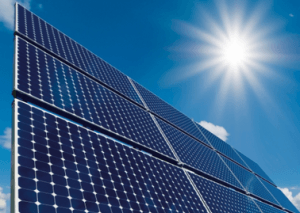Renewable energy to top debate at Africa climate conference
 The Economic Commission for Africa (ECA) says the low exploitation of renewable power is expected to be on the agenda at the upcoming Conference on Climate Change and Development in Africa which will discuss energy and sustainable development.
The Economic Commission for Africa (ECA) says the low exploitation of renewable power is expected to be on the agenda at the upcoming Conference on Climate Change and Development in Africa which will discuss energy and sustainable development.
Despite the continent’s vast store of renewable energy in hydro, solar, wind, geothermal, biomass and marine energy, the installed capacity of renewable power in Africa is still low and is estimated at 22 per cent.
A statement by the ECA said the agenda for the conference will focus on the critical role of bio-energy transition and its resulting environmental benefits; opportunities for renewable energy for climate mitigation and resilience; and the policy and regulatory framework required to unlock transformative financing.
Earlier in July 2015, at a side event during the third International Conference on Financing for Development held in Addis Ababa, Dr. Carlos Lopes, UN Under-Secretary General and Executive Secretary of the ECA, warned that “we cannot achieve structural transformation and inclusive green growth if we do not find sustainable solutions to the current energy deficit.”
Dr Lopes was also quoted to have asked: “The African region is brimming with resources, and we know that Africa is now home to some of the fastest growing economies. The question is: can the strength of these rising economies, coupled with Africa’s plentiful resources, light up the continent and power Africa’s economies to achieve the industrial transformation that we want?”
Among the conclusions of that conference was the realization that more African countries need to immediately establish appropriate policy and regulatory frameworks to accelerate the uptake of renewable energy on the continent, for the multiple environmental, social and economic benefits, including those arising from localization of the deployment value chain.
The discussions also concluded that the energy strategy adopted by African countries is central to the continent’s response to climate change while transforming its economies for inclusive green growth, and sufficient attention must be paid to mobilizing substantial investments for sustainable bioenergy development.
By Emmanuel Odonkor
